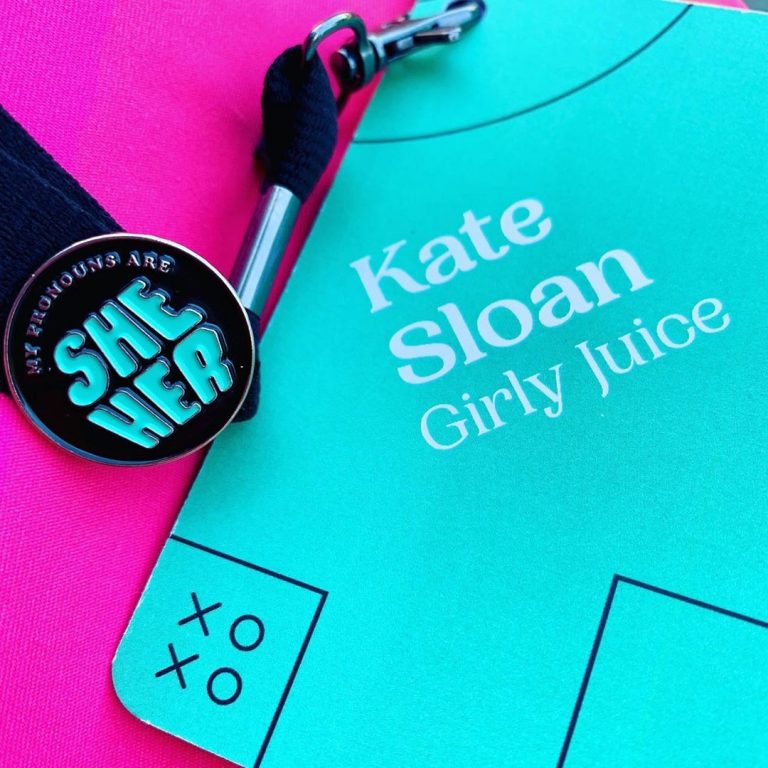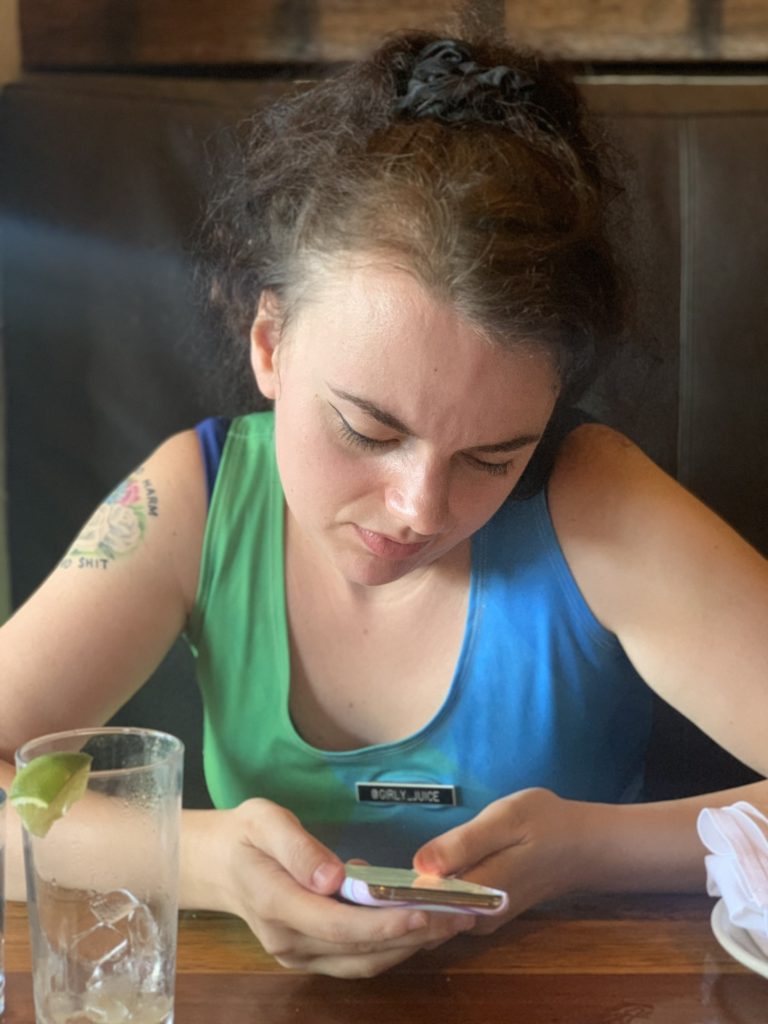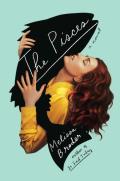
I’ve never been addicted to a substance. I’ve never been over-reliant on booze or weed or pills. But I have been addicted to romantic fantasies, and let me tell you, the compulsions and withdrawal can feel surprisingly tangible – like something vital is missing from your blood, your bones, and you’d do anything to get it back.
In the last few dying weeks of 2016, I went on a Tinder date which was completely unremarkable, except for what I learned from it. My pre-date banter with this boy was fast and easy, creating the sense of chemistry where perhaps there was just empty charm. The date itself was boring, one of those classic Tinderludes where you work painfully hard to pull dry conversation out of a monosyllabic, nervous stranger. The sex that followed was boring, too: our bodies didn’t fit together right, we didn’t take each other’s hints or make each other giggle, we just loped through the encounter as if on hookup-culture autopilot. The boy left around 2AM and I snuggled up in my bed, alone.
It took me until the next day to realize something was wrong. I felt a profound heaviness in my body, like when I’m hit by depression, yet even more acutely needling. It felt like something I loved had been abruptly taken away from me, even though – much to the contrary – someone I didn’t love had left me alone.
Dissecting these feelings in my journal, I saw that I’d put a lot of stock into this boy in the few days we’d known each other. I’d extrapolated wild compatibility from his brief texts and bland emojis. I’d spun our present into a plausible future. I’d imagined he wanted more from me than just sex, and I’d imagined wanting anything from him. So when the date itself was a disappointment and the boy left, I was shaken – not by the loss of the boy, but by the loss of the fantasy.
This had become, I realized, a pattern in my life. Compulsive swiping was how I dealt with any uncomfortable emotion, from boredom to sadness to fear. No matter what, it felt safe and sparkly to return to a reliable old fantasy: that this next swipe, this next match, this next message would lead me inevitably closer to the love of my life. That I was moments from a meet-cute that would cure my every sore spot. That someone perfect would come along and relieve me from the mundane inadequacy of myself.
The trouble is, when romantic fantasy gets you high, you crash spectacularly hard whenever your romantic hopes are dashed. I saw this in the months to come: a sexting pal told me he was unavailable for a more romantic situation, and I cried; a Tinder match told me he wasn’t actually interested in me because our views on polyamory differed, and I cried; a new FWB stated clearly that he didn’t want me in a romantic way, and I cried. A promising OkCupid boy ghosted me after less than a day of scintillating texts, and I had a total meltdown: nausea, panic, weeping, unsalvageable despair. When the pain of that rejection became unbearable, what did I do? I hopped on Tinder to find someone else to fantasize about. (That next distraction eventually ghosted me too.)
I was in therapy all the while, and probably not being altogether honest about the extent of my addiction. But my therapist, ever-perceptive, asked me once, “How much time would you guess you spend on online dating every week?” and I couldn’t quantify it. There were the hours I spent swiping, and the hours I spent moonily fantasizing, and the hours I spent going on dates, and the hours I spent crying and journaling when the dates didn’t go perfectly. The total seemed incalculable – partly due to the shame of that calculation.
Somewhere around this time, a friend of mine started going to weekly meetings for sex and love addicts. I was surprised to hear this; she had always seemed so level-headed. But looking back, I saw places where maybe our kinship and connection had been based on a shared addiction: we loved debriefing about boys and dates and minute flirtations, and we encouraged each other in these fancies. Where was the line between healthy fun and self-destruction?
Though I wasn’t sure whether my friend’s condition was anything like mine, the phrase kept returning to the forefront of my mind: love addiction. It seemed to fit. The highs of my fantasies were euphoric, like that first sweet hit of a new drug – and the subsequent devastations felt all-consuming, closer to rock bottom every time. In those depressed states, I’d hunt for something, anything, to relieve my sense of loneliness and failure. Alcohol, drugs, shopping, self-harm, exercise, bad TV, more Tinder time – nothing could fill the void. It felt like I needed love, but really what I needed was a healthier relationship to love.
I went to see another friend of mine who had struggled with multiple addictions in the past, and had been through a couple of twelve-step programs. As we sipped milkshakes in my pal’s apartment, they told me, “When I find myself wanting to do something rash, I always just tell myself, ‘If I still want to do it in 15 minutes, I can.’ And I almost never do.” I took their advice to heart: distraction, I knew, was not a long-term strategy, but maybe it could help shake me out of my addiction just enough that I could start recovering.
And recover, I did – slowly, non-linearly, with the help of a therapist and my friends and intermittent partners and lots and lots of writing. Nowadays I can browse Tinder occasionally without hanging my entire livelihood on each swipe, and while I haven’t been on a first date in months, I gather the day after a date would no longer make me feel like death. I’m still careful and self-critical about these behaviors, but I seem to be doing okay.
I hadn’t thought about this stuff in a long time, but then I picked up Melissa Broder’s new novel The Pisces and felt like I was peering through a looking-glass at my early-2017 self. So it seemed like a good time to examine my history with love addiction and write about it here.
Broder is the biting writer behind the viral @SoSadToday account on Twitter, the subsequent depression-soaked essay collection So Sad Today, and a book of poetry called Last Sext, among other things. While I think she deals with mental illness more intense than mine has ever been, her work fixates on themes of love and sex and how they interact with depression and anxiety – so, naturally, I adore her.
Her debut novel, The Pisces, is – as you might already know if you’ve seen any press about it – the story of a woman who falls in love with a merman, and has tons of sex with him. (Yes, a merman, as in a male mermaid. Yes, he lives in the ocean and she lives on land. Yes, he has a dick. It’s under a loincloth.) But at its core, it’s really a novel about love addiction. The protagonist, Lucy, breaks up with her long-term boyfriend at the start of the novel, and falls into a toxic cycle of chasing fantasy men and then being disappointed by them. I found her Tinder tribulations so relatable that I made more Kindle highlights than I’ve ever made in any book, and kept alternately weeping and cackling as I read. “There was something about the morning of a date that tricked me,” Lucy muses, after spending far too much money on lingerie for a tryst that will turn out disastrous-bordering-on-traumatic. “It tricked me out of the haze of being alive. Or perhaps it tricked me out of the sadness of knowing that one day I would die. It punctured the nothingness.” I nodded so hard my teeth chattered.
I saw myself in Lucy’s hapless Tinder dates, and, later, in her pining lovesickness over Theo, the handsome merman she meets near her sister’s beach house. While the novel sets Theo up as potentially being Lucy’s “true love” – the one she’s been waiting for, searching for, longing for – there’s actually no indication that he’s better than any of the online-dating fuckboys who leave her sexually and emotionally dissatisfied. It’s telling that Broder gives her romantically delusional protagonist a dream man who is a literal fantasy creature – and that no other character in the book ever actually sees Theo, so we can’t be entirely sure he exists at all. Isn’t every “true love,” in some sense, a projection, part mirage, a trick of the light?
Far from being the wild merman sex romp it’s been marketed as, The Pisces is a deeply philosophical novel that struggles with huge themes of love, emptiness, and contentment. It spends more time picking apart the whys and hows of romantic addiction than it does describing Theo’s scaly tail or the logistics of his underwater life. We know more about Lucy’s fears, fantasies, and yearnings than we ever know about Theo. But that’s the way of the love addict: making other people into a goal or a punchline, rather than allowing them to just be people.
By the end of the novel, Lucy seems to understand herself a little better, and to have a better handle on what she actually needs. I cried when I finished this book: I cried for Lucy, and for Theo, and for myself. At one point in the story, Lucy quips, “I didn’t want to be seen too closely or I might have to look at me too,” and that’s how The Pisces made me feel: seen, looked at, called out. But ultimately it served as a reminder of the habits I’d hate to fall back into, the fantasies I can no longer rely on, and the emptiness I no longer need to feel.


 Online dating is a beast. If you’re not careful, it can consume your life, with its alluring promises and gameified interface. This is especially true if, like many of us, you’re just not finding it that useful for its purported purpose: connecting you with people you’ll get along with. Sometimes Tinder, Bumble, and OkCupid can feel like a pit of quicksand that sucks up all your time – and crushes your soul in the process. I often compare it to trying to find a diamond in a garbage heap.
Online dating is a beast. If you’re not careful, it can consume your life, with its alluring promises and gameified interface. This is especially true if, like many of us, you’re just not finding it that useful for its purported purpose: connecting you with people you’ll get along with. Sometimes Tinder, Bumble, and OkCupid can feel like a pit of quicksand that sucks up all your time – and crushes your soul in the process. I often compare it to trying to find a diamond in a garbage heap.

